God’s Pantry Food Bank new headquarters and distribution center in Lexington, KY nearing completion
We are excited about the great progress on our God’s Pantry Food Bank project. This facility will be God’s Pantry’s Kentucky Headquarters and Main Distribution Center and we are thankful to be a part of this valuable service for our community!
God’s Pantry Food Bank is a non-profit agency in Lexington, Kentucky, whose mission is to reduce hunger by working together through a network of partners to feed Kentucky communities with nutritious food. To learn more about their mission and how you can help, please go to: https://www.godspantry.org



Progress continuing on Aluminum Recycling Facility in Guthrie, KY
Construction is continuing to progress on the 640K Sq. Ft. Aluminum Recycle Facility in Guthrie, KY. We are wrapping up the casting pit construction and recently set, what some may say, is the largest cast cylinder in the world!
Denham-Blythe kickoff celebration for joint venture with Nissin in Piedmont, SC
Denham-Blythe Team Members celebrated our joint venture with Nissin Original Cup Noodles at the project kickoff in Piedmont, SC! The Project team is showcasing some of the products made by Nissin. They produce some of our favorite cup of noodles at this facility. The project is scheduled for completion in Spring of 2025.
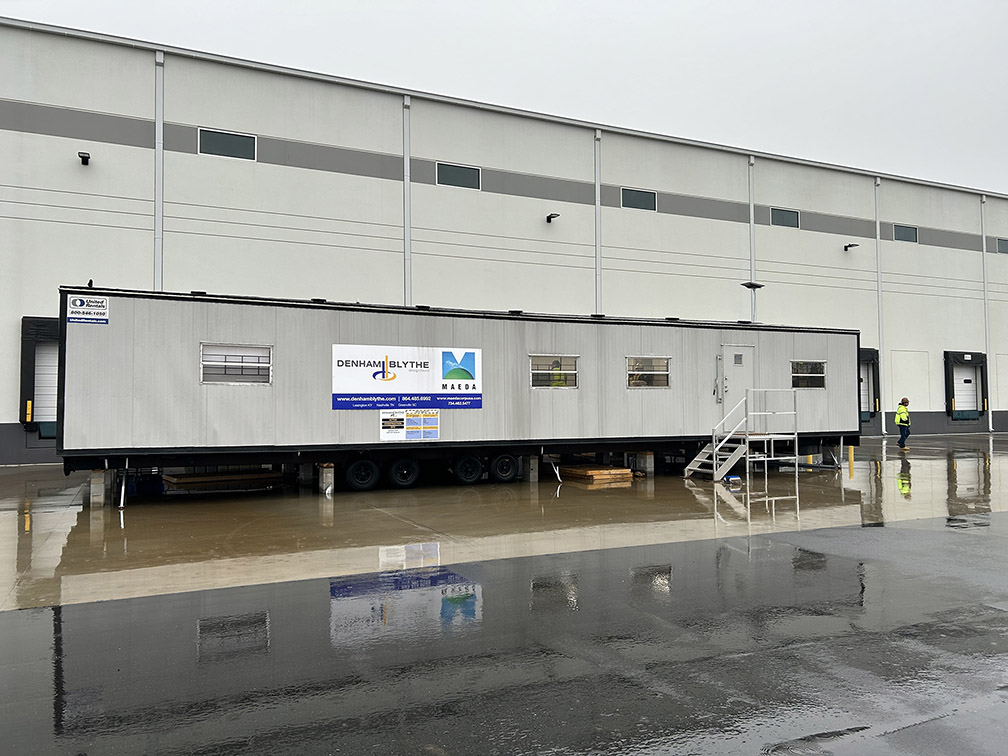
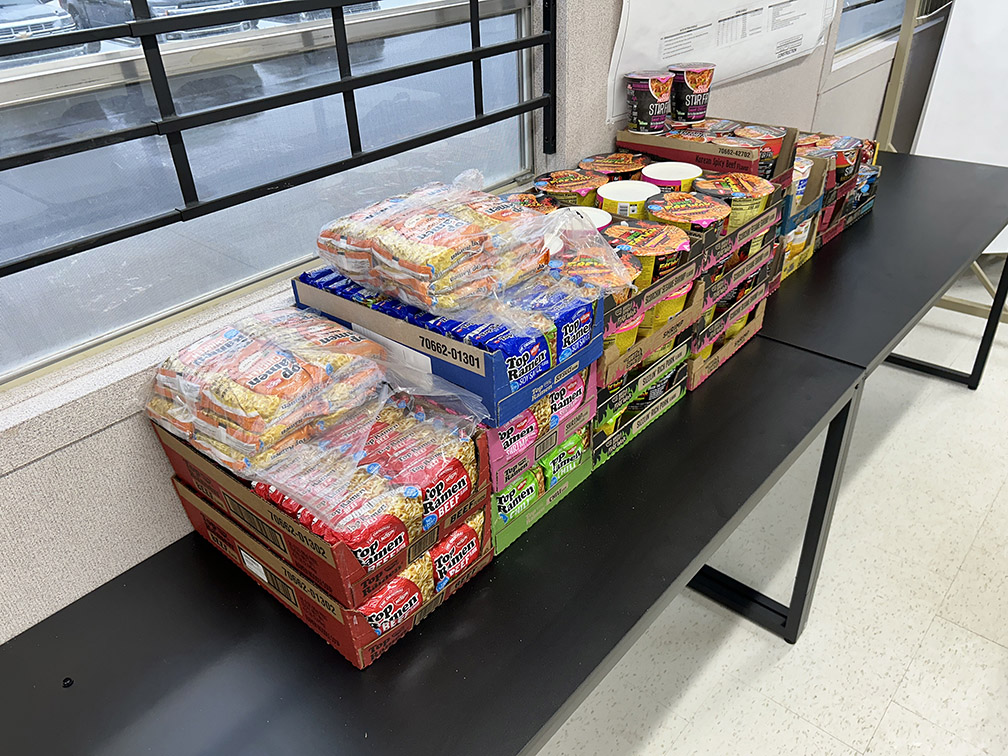
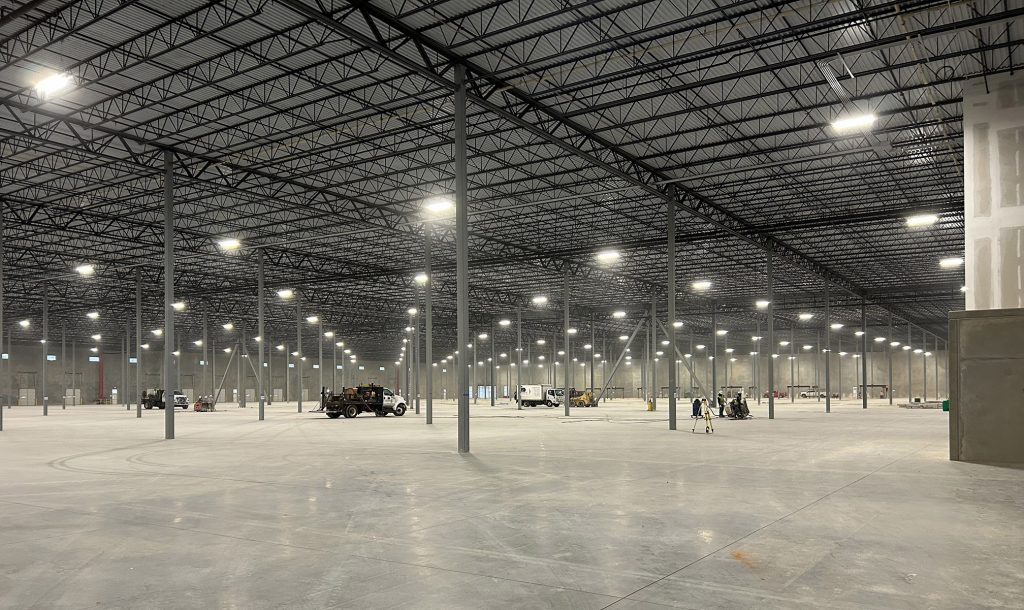
New hazardous manufacturing facility for LioChem/Toyo Ink underway in Franklin, KY
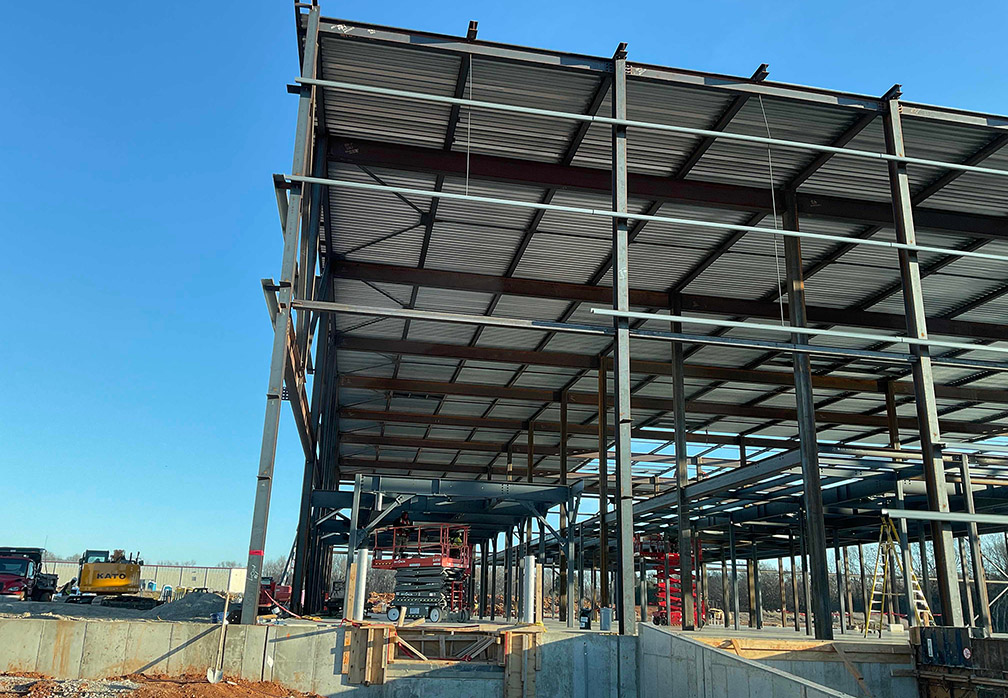
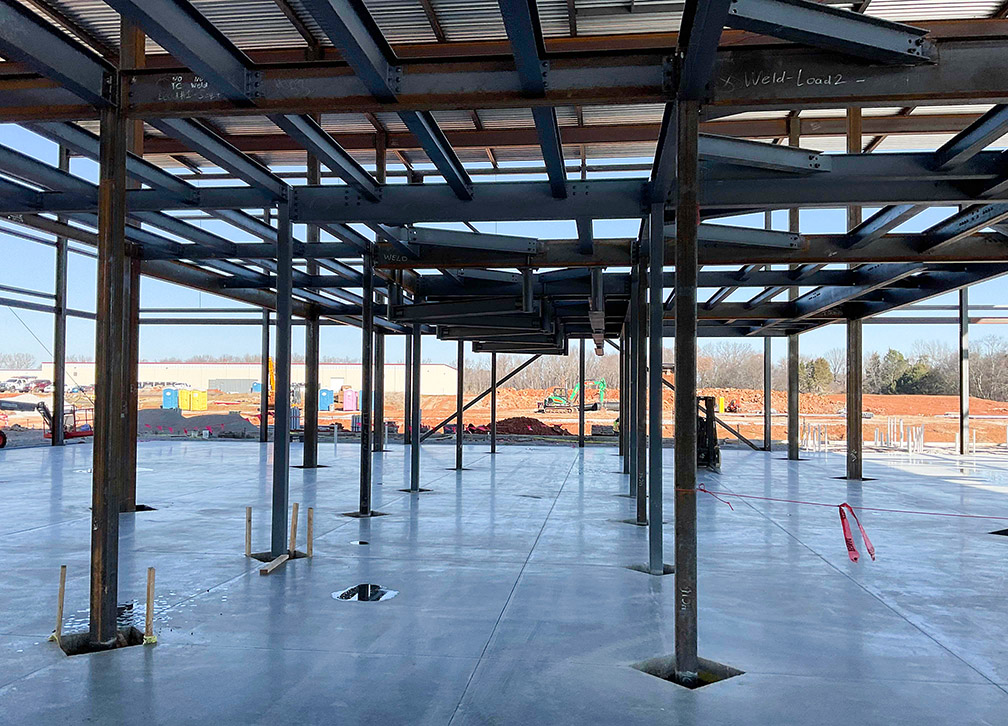
Construction is underway for a new hazardous manufacturing facility for LioChem/Toyo Ink in Franklin, KY. The building will be 85,000 SF including new offices, tank farms, process mezzanines, a new electrical service, and enhanced fire suppression systems.
Denham-Blythe named winner of Design/Build Category for the 2023 AGC Build Kentucky Awards
Denham-Blythe received the 2023 AGC’s Build Kentucky Award in the Design/Build category for Catalent Pharma Solutions Front Office Expansion in Winchester, KY. The Catalent Front Office Addition consisted of adding a brand-new main office to the front of the Catalent Headquarters and be the new focal point and showcase of the facility. With contracts to manufacture pharmaceutical products from customers all over the United States and world, the new state-of-the-art addition serves as a welcome center to customers worldwide, as they visit and tour the first-class clean rooms and production suites.
The new building also provided a much-needed consolidation of various Catalent staff offices to one central location. The new offices and main entrance not only add great conference rooms and working spaces for visiting customers, but they add exceptional curb appeal to the local industrial park. The facility has an entirely different look to show off their products. This addition provides more job opportunities for the Winchester community, while positively impacting the economy. The construction of this project consisted largely of Kentucky-based contractors. We appreciate partnering with Catalent on their new office building.
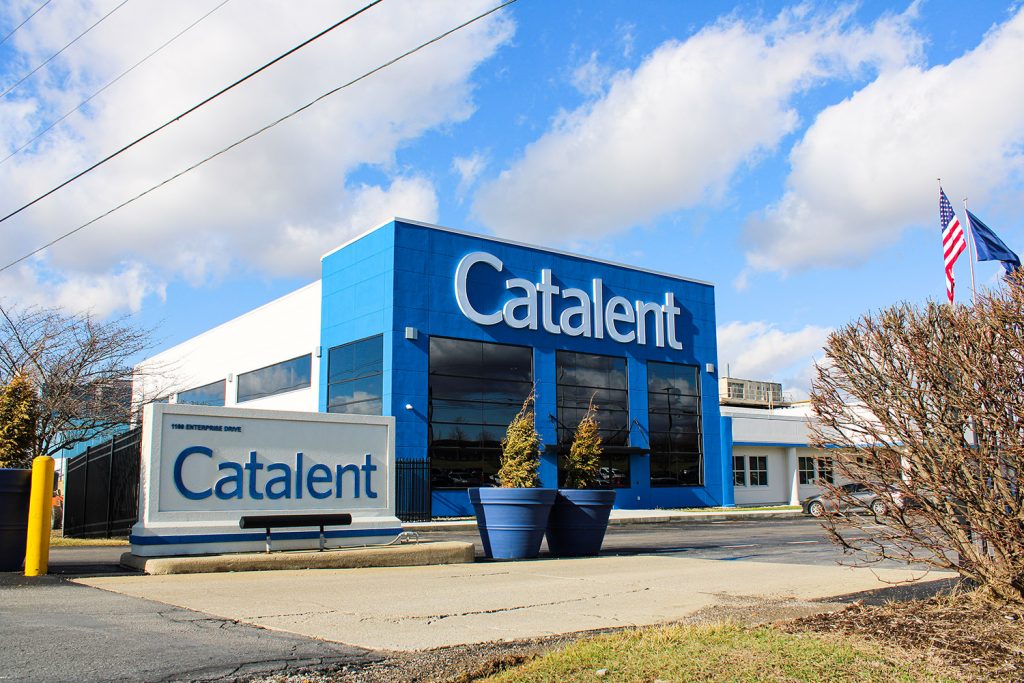
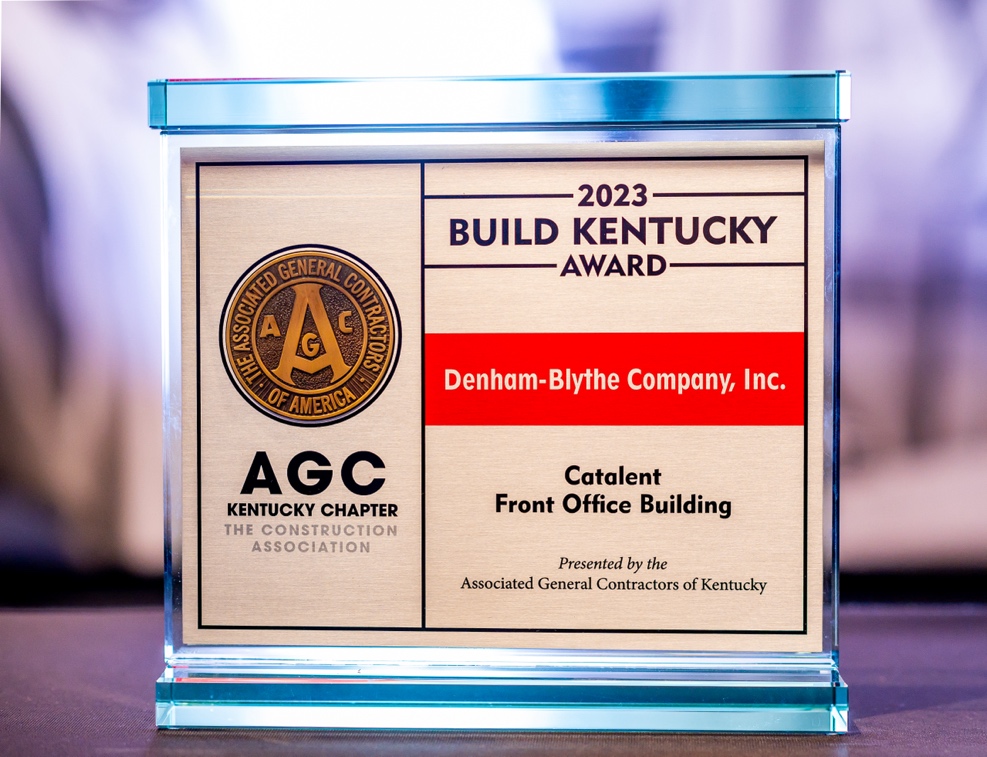
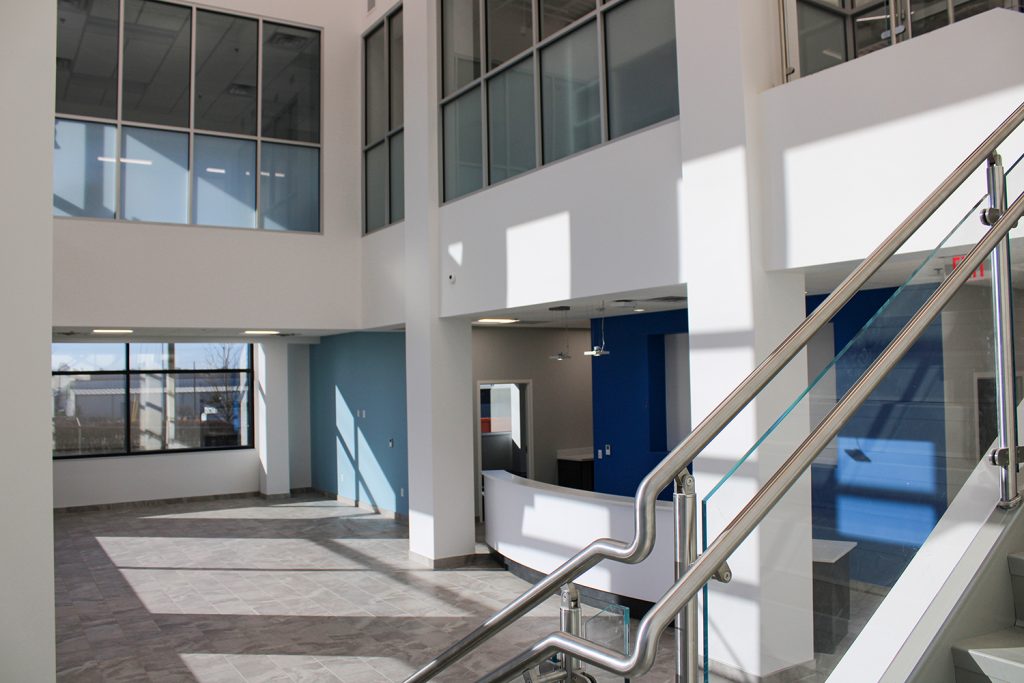
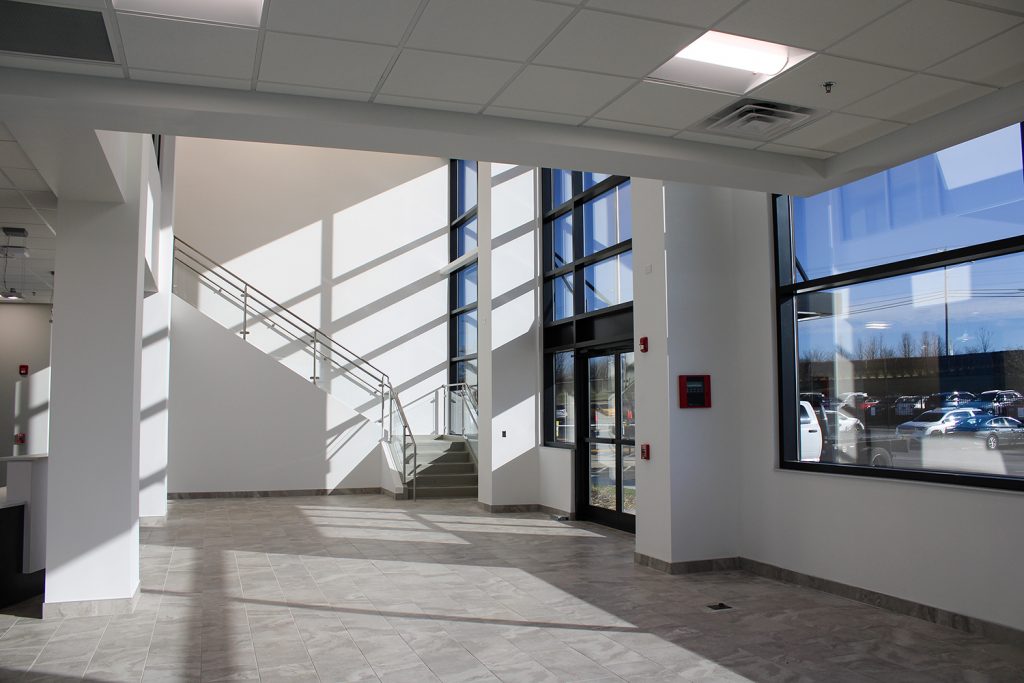
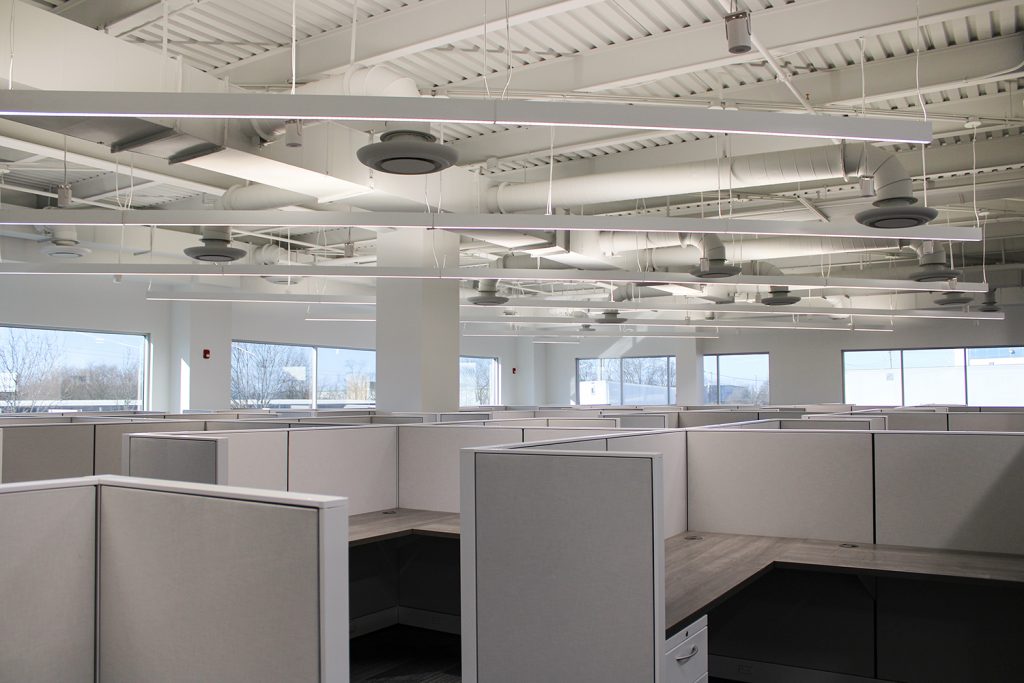
Denham-Blythe team members volunteer for God’s Pantry Food Bank’s “Sharing Thanksgiving Basket Brigade”
Denham-Blythe Company team members volunteered to assemble a portion of the 6,000+ Thanksgiving boxes as part of God’s Pantry Food Bank‘s Sharing Thanksgiving Basket Brigade on Saturday, Nov. 11. Each box included food for a family to enjoy a Thanksgiving meal at home.
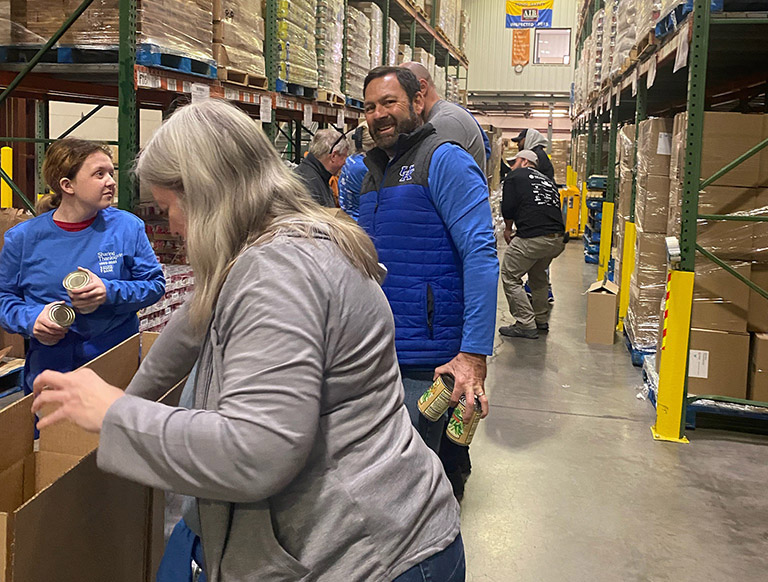



Denham-Blythe selected to renovate and expand God’s Pantry Food Bank headquarters in Lexington, KY
We are excited to announce that Denham-Blythe has been selected for renovations and additions to God’s Pantry Food Bank headquarters at Blue Grass Business Park in Lexington, KY. Yesterday was the official groundbreaking for this exciting project that will allow God’s Pantry Food Bank to increase their ability to feed more Kentuckians in the future. The 127,232 sq. ft. renovated building will include updated office areas, expanded shipping and receiving offices, and an improved reception area. Also included in the renovations will be the installation of a freezer and cooler space, a produce cooler, and a conditioned receiving dock.
When complete, the building renovation and expansion will support more than 500 partner agencies in Central and Eastern Kentucky.
Completion of casting pit placement significant milestone at Novelis Site in Guthrie, KY
After many manhours and complex logistics, Denham-Blythe Company recently completed the excavation and concrete placement of a casting pit at the Novelis Merlin site in Guthrie, KY. The casting pit is a space in which molten aluminum is cast into large ingots. The placement of this 7’-0” thick base mat required a specialized concrete with waterproofing and anti wash-out additives in order to place the concrete in standing water that was the result of groundwater infiltration at a rate of 800 gallons per minute.
Blue Grass Airport announces Denham-Blythe chosen to construct new 50,000 SF hangar for corporate aircraft
The Lexington-Fayette Urban County Airport Board has selected Denham-Blythe to construct a new 50,000-square-foot hangar for large corporate aircraft at Blue Grass Airport. The new hangar includes 30-foot-high doors and is designed to accommodate business jets in sizes up to the Gulfstream G700 and Global Express 7500/8000 platforms. This facility will have the capability to house the largest and longest-range corporate aircraft available on the market.
Construction of the new hangar is set to begin in October 2023 with anticipated completion in fall 2024. Denham-Blythe Company is a design-build construction company with over 40 years of experience in the automotive, industrial, food/pharma, healthcare, institutional, and commercial sectors. Since 1976, Denham-Blythe has completed more than 10,000 projects in the United States and Mexico for a diverse customer base including local startups and Fortune 500 companies.
In addition to the 30-foot-high doors, this hangar will include associated offices and storage spaces as well as vehicle parking. This $15.5 million project is yet another example of how Blue Grass Airport is investing in its infrastructure to serve the needs of aircraft owners.
“Blue Grass Airport is committed to advancing its private aviation facilities to meet the evolving needs of the aviation community,” said Eric Frankl, president & CEO of Blue Grass Airport. “This new hangar represents a significant step forward in that effort. The 30-foot-high doors will provide the flexibility to house a diverse fleet of aircraft, and we look forward to providing our corporate aviation partners with an exceptional facility with the utmost conveniences.”
Denham-Blythe proud sponsor of Thoroughbred Retirement Foundation
Photo taken at TRF educational event sponsored by Denham-Blythe and held at Spy Coast Farm in Lexington, KY
Denham Blythe is happy to be a partner of the Thoroughbred Retirement Foundaton (TRF) and their Second Chances program at the Blackburn Correctional Complex in Lexington, KY. Established in 1999, the TRF opened a farm at Blackburn, and shortly before the first TRF horses arrived, an old dairy barn was converted to accommodate the horses.
Today, it is one of the TRF’s largest Second Chances Farms, with about 50 horses living out their retirement years on 100 acres of prime Kentucky bluegrass at the state’s largest minimum-security prison.
The program is mutually beneficial to the offenders working in the program and the program’s thoroughbreds. The horses are well cared for and live their remaining years in a stable and nurturing environment. The offenders learn patience, a sense of empathy, trust, and responsibility, as well as valuable skills that may assist them in securing future employment.
To learn more about the TRF, follow this link: Thoroughbred Retirement Foundation
Jordan Lewis named the 2023 Young Construction Engineer of the Year by University of Kentucky College of Engineering
Congratulations to Jordan Lewis, Senior Project Manager, for being named the 2023 Young Construction Engineer of the Year by the University of Kentucky College of Engineering. The award recognizes individuals that have made profound impacts on the construction industry in Kentucky early in their careers. Jordan was nominated for his leadership, safety record, and effectiveness in managing jobsites and projects with a great deal of diversity. We are so proud of his achievements at Denham-Blythe.
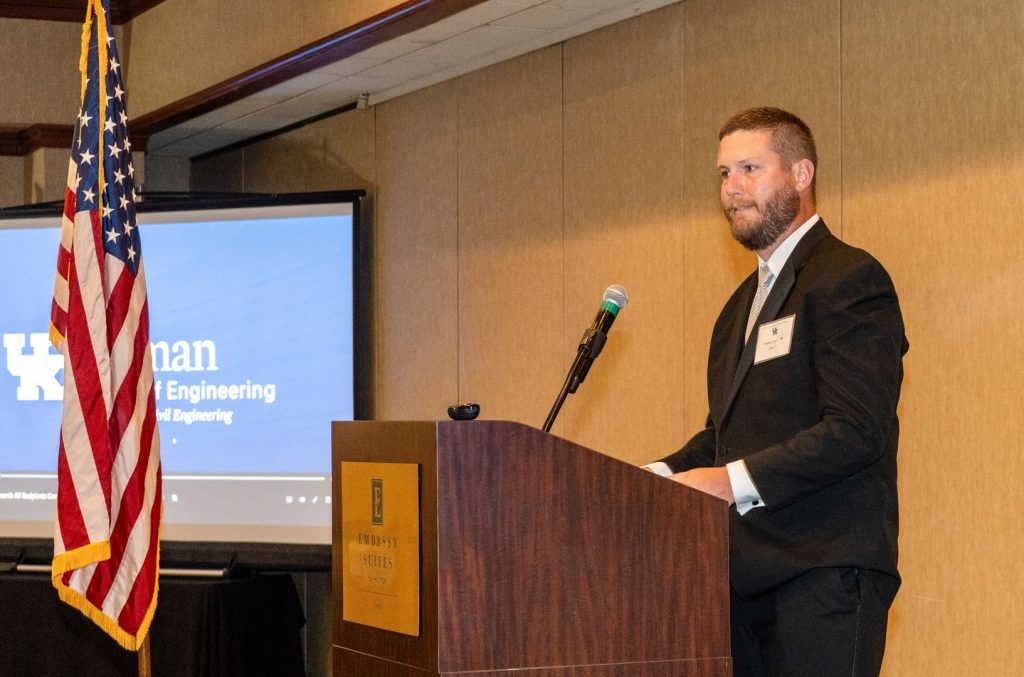
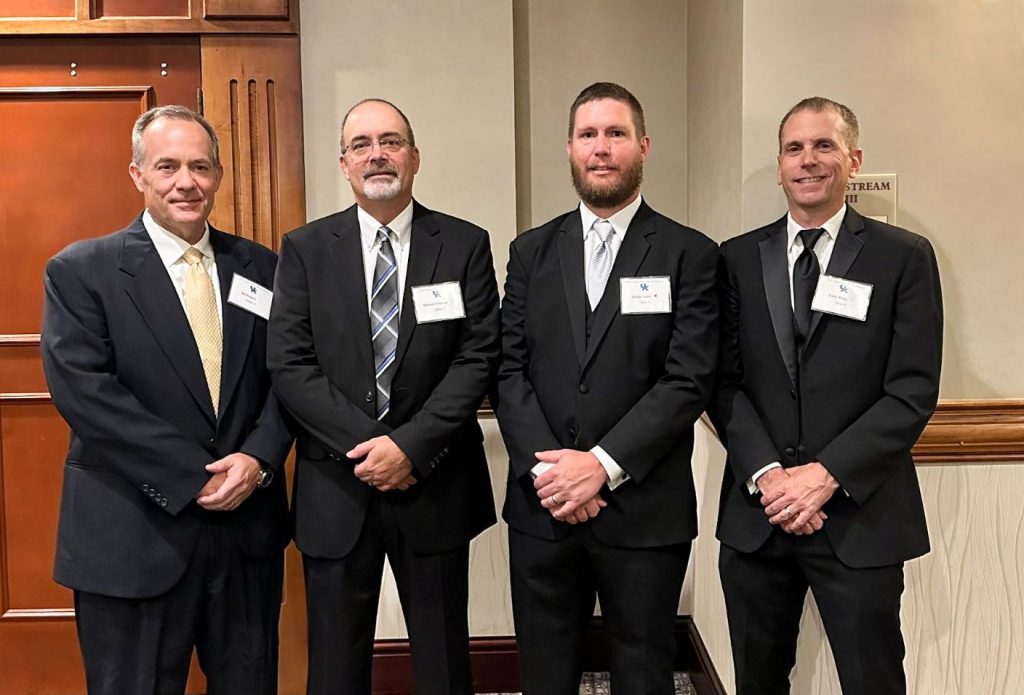
Novelis Aluminum Casting Facility construction progressing well in Guthrie, KY
Steel erection of the 640,0000 SF new aluminum casting facility for Novelis is nearly half complete and work in and around the 50’-0” deep casting pit is accelerating.
Happy National Intern Day 2023!
Denham-Blythe is dedicated to recognizing and celebrating the accomplishments of our interns. They are the future leaders of the world, and we take pride in their quality training and give encouragement for achieving their goals in the construction industry. Whether working in the office or on a job site, our interns are ready to help and serve the company, and we want to acknowledge their hard work.
Denham-Blythe celebrates 2023 International Women in Engineering Day – June 23
It’s International Women In Engineering Day! The day was created as an awareness campaign across the world celebrating the work and achievements of women engineers. We wish to acknowledge our Denham-Blythe engineers for their outstanding work in the construction industry. Check out this testimonial video on why our women engineers love working in the field they are in. #INWED23 #WomenEngineers #WeAreDesignBuild
Construction Safety Week 2023 – May 1-5
Denham-Blythe is dedicated to providing a strong safety environment for our employees. For instance:
We hold daily training and “toolbox talks” to go over the do’s and don’t of inspecting equipment for safety issues, and making sure everyone is training properly on the equipment they will be using.
According to OSHA, falls are the leading cause of death in construction. So, we follow best practices to avoid falls in the workplace by always wearing proper PPE, including safety harnesses, using 3-Points-of-Contact while climbing a ladder, avoiding overreaching by moving the ladder for better access, and staying behind safety barriers and away from edges.
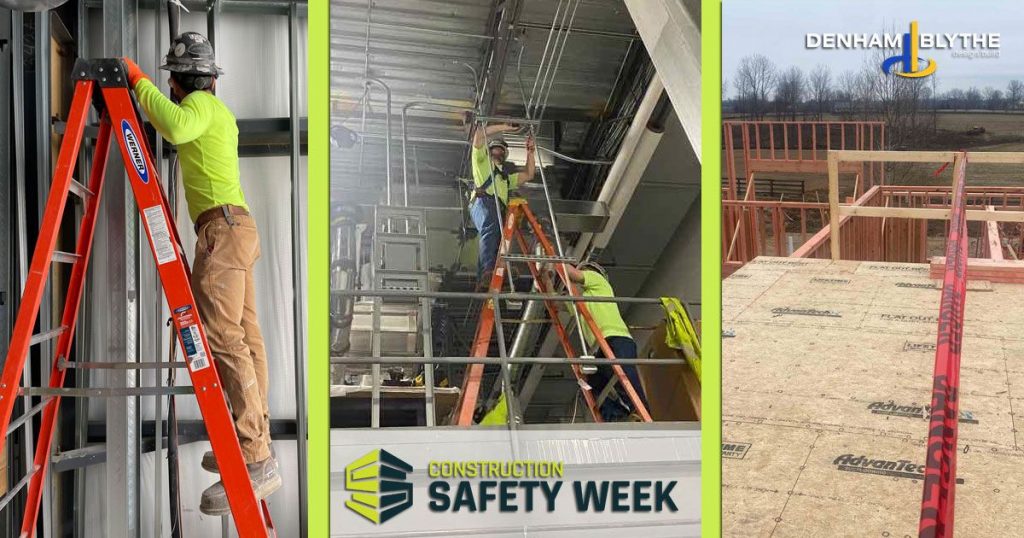
Practicing good housekeeping keeps our crews safe from construction debris. Sharp objects like nails or screws on the floor, or piles of material haphazardly strewn about, can result in injuries that are easily preventable. By keeping the floors clean of debris and stacking things such as drywall neatly in a designated areas while wearing appropriate PPE, we can prevent injuries before they occur.

Denham-Blythe celebrates Women in Construction Week 2023 – March 5-11
Breaking barriers and challenging the status quo in a male-dominated industry, Denham-Blythe Company women are an invaluable part of our continuing success, and we salute them during #WomenInConstructionWeek2023 and #WomensHistoryMonth! Check out why DB women enjoy working in construction! #wearedesignbuild
Denham-Blythe wins Design/Build Category for AGC Kentucky Chapter’s 2022 Build Kentucky Awards
Denham-Blythe has been named the winner of the Design/Build category for AGC of Kentucky, Inc.‘s 2022 Build Kentucky Awards for the WB Transport LLc Distribution Facility in London, KY. The project expanded the capability of WB Transport to house and ship more product in KY and increase employment opportunity for KY workers.
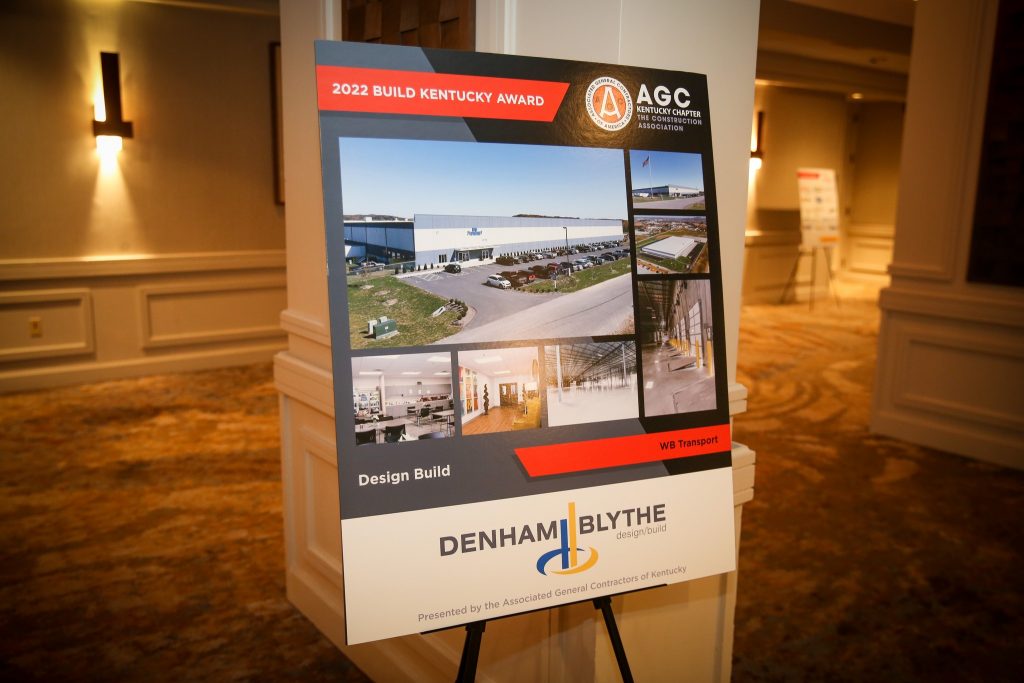
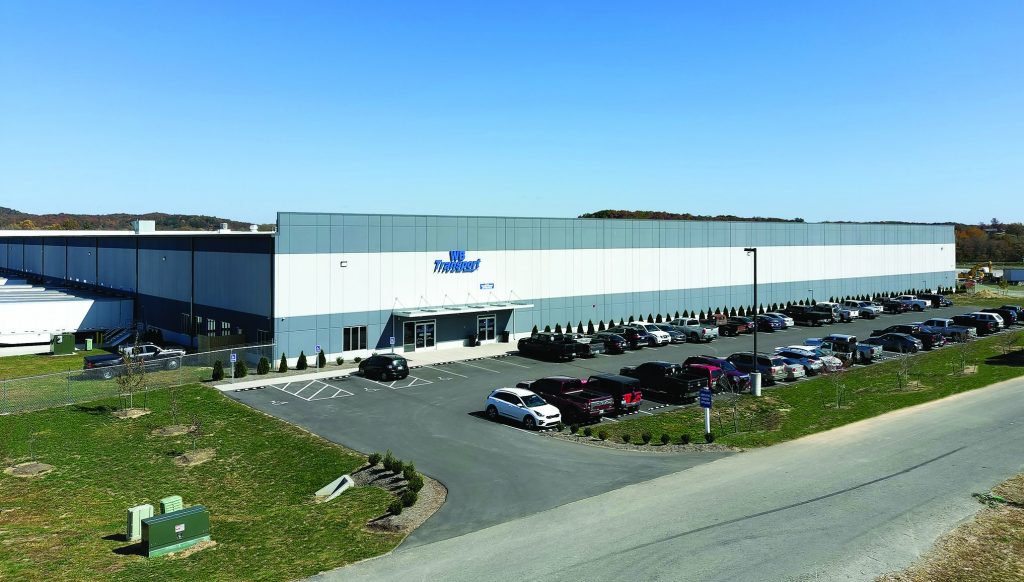
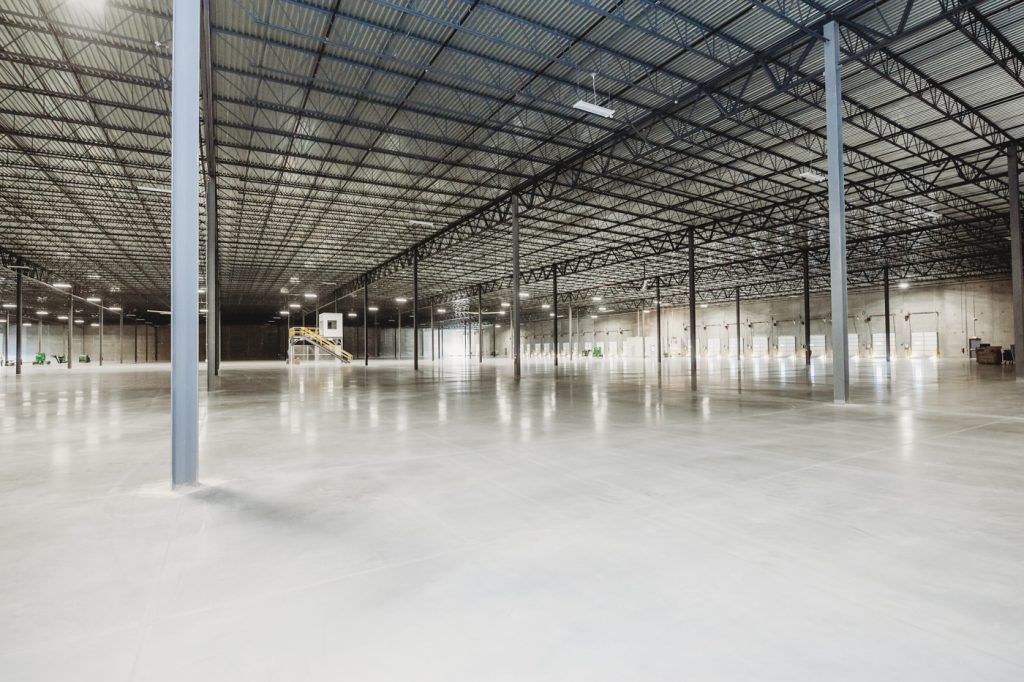
Bill Ramsey named President of the Louisville Office for Denham-Blythe Co., Inc.
Bill Ramsey has recently been named President of the Louisville office for Denham-Blythe Co. Inc. Ramsey will oversee all operations for the Louisville office. He is the former Executive Vice President of Business Development at Denham-Blythe.
The company was founded in 1976 in Lexington, Ky. Specializing in markets such as industrial manufacturing, automotive, distribution, food, and healthcare, Denham-Blythe focuses on creating and maintaining relationships, completing building projects in over 30 states and Mexico, with 90% of its business from repeat customers.
DB Tennessee Office team members take part in golf scramble for Nashville Advocacy Group “4:13 Strong”
Our Tennessee office recently took part in a golf scramble to benefit 4:13 Strong, a Nashville advocacy group that helps men between the ages of 18-30 break harmful cycles of poverty, fatherlessness and crime by building relationships with their community through opportunities such as mentoring, job skills training and life skills training. For more information on how you can volunteer for 4:13 Strong, go to https://413strong.org/get-involved/volunteer/ #DBCares #Community
James Davis, President of Denham-Blythe, retires after 30-years of service with the company
President James Davis has retired after 30 years of service at Denham-Blythe. James has been a cornerstone of the Denham-Blythe, growing great customers during his tenure beginning with his career as a Field Engineer and working his way up to President. We appreciate the great leadership he has provided and the legacy he has left.
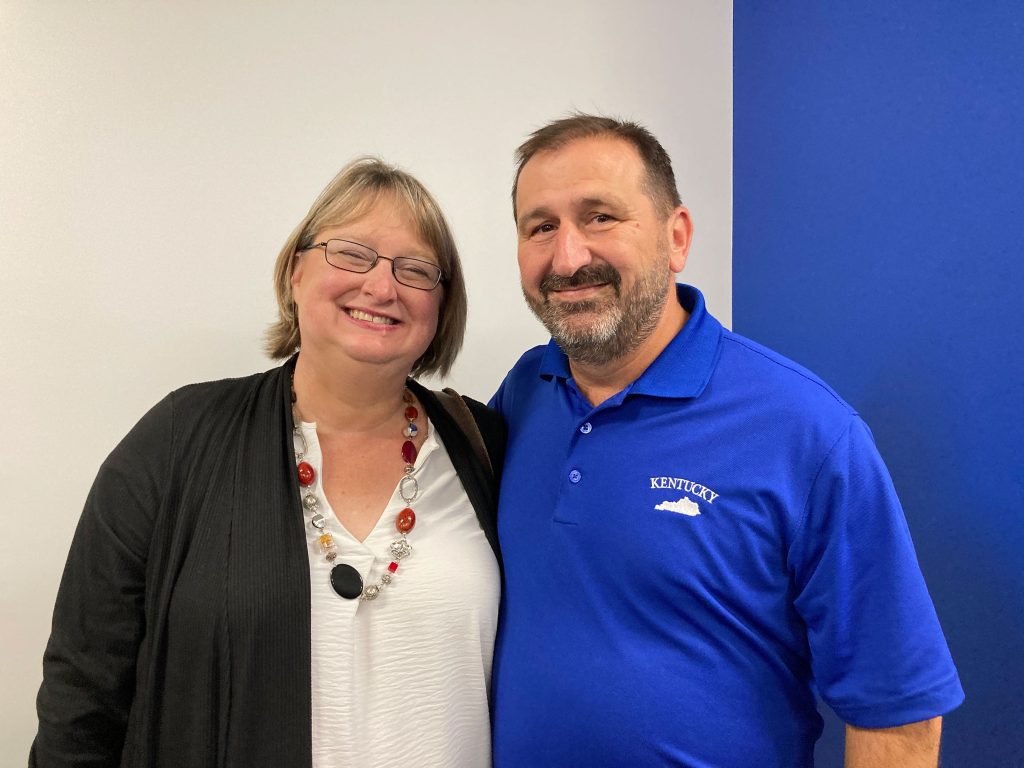
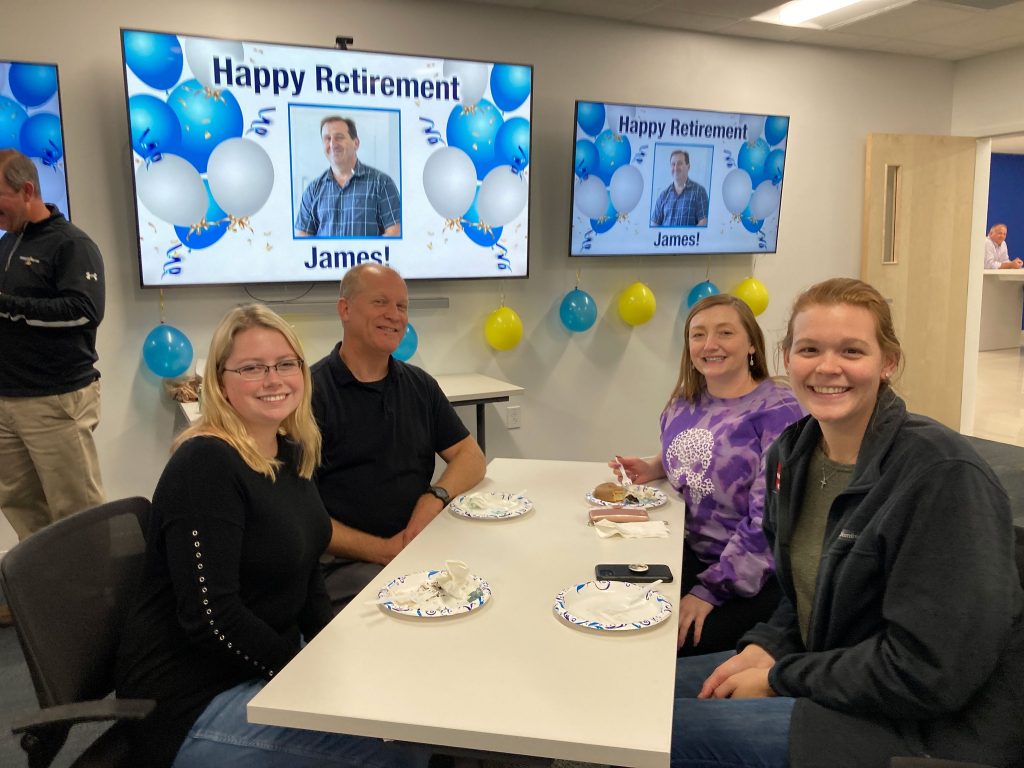
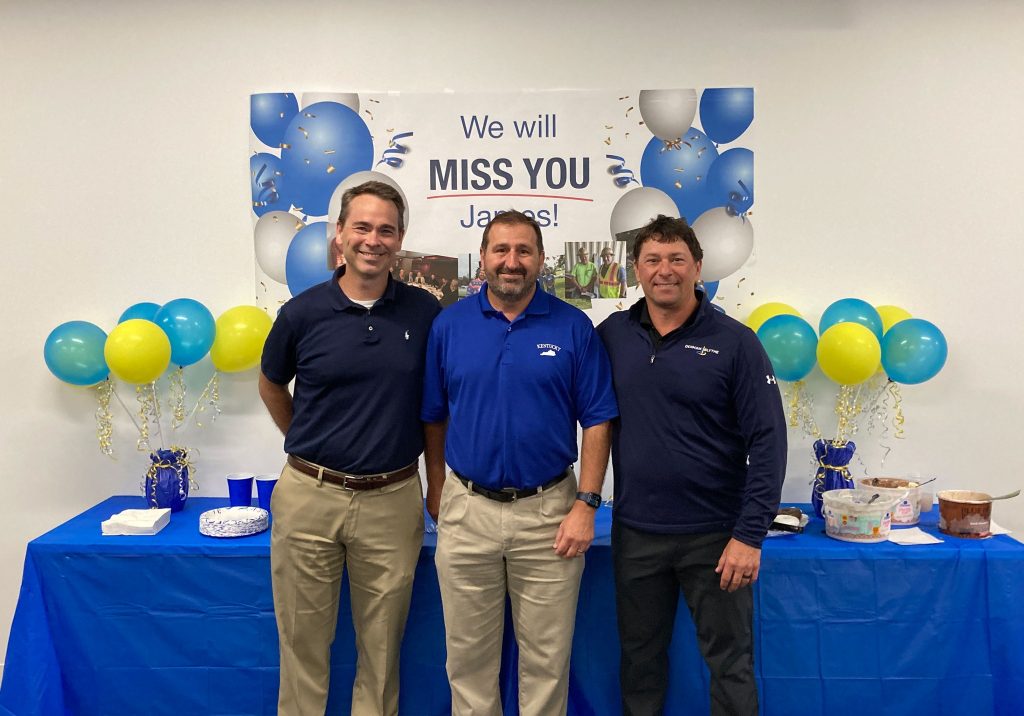
Michael Patterson promoted to President of the Lexington Office for Denham-Blythe Co., Inc.
Michael Patterson has been promoted to President of the Lexington Office for Denham-Blythe Co., Inc., a design/build large construction company with offices in Kentucky, South Carolina and Tennessee.
Patterson will oversee human resources, accounting, safety, assets, pre-construction and construction services for the Lexington office.
He is the former Executive Vice President of Construction & Business Development at Denham-Blythe, which was founded in 1976 in Lexington, Ky.
Specializing in markets such as industrial manufacturing, automotive, distribution, food, and healthcare, Denham-Blythe focuses on creating and maintaining relationships, completing building projects in over 30 states and Mexico, with 90% of its business from repeat customers.
Tennessee DB team members attend “Concrete 101: Hot and Cold Weather Concrete Class” for training
Twenty-nine of our Tennessee team members recently attended a training class called “Concrete 101: Hot and Cold Weather Concrete,” taught by Alan Sparkman with the Tennessee Concrete Association. Denham-Blythe makes sure team members have the correct training to work with materials during different types of weather conditions to ensure high quality production.
Denham-Blythe hosts Japan/America Society of Kentucky (JASK) 6:01 Networking event
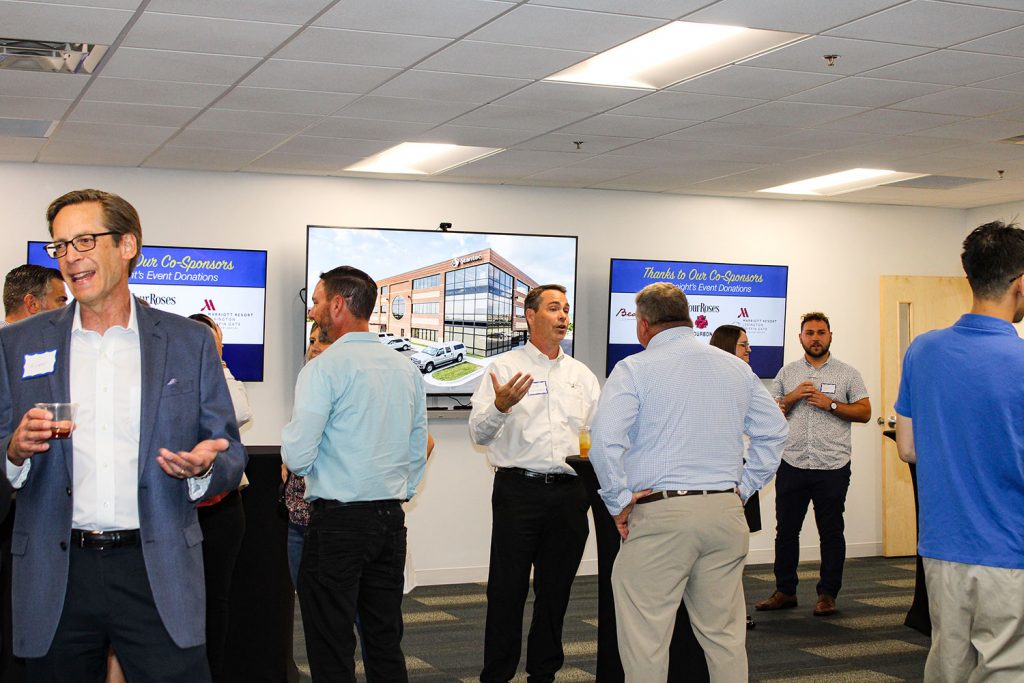
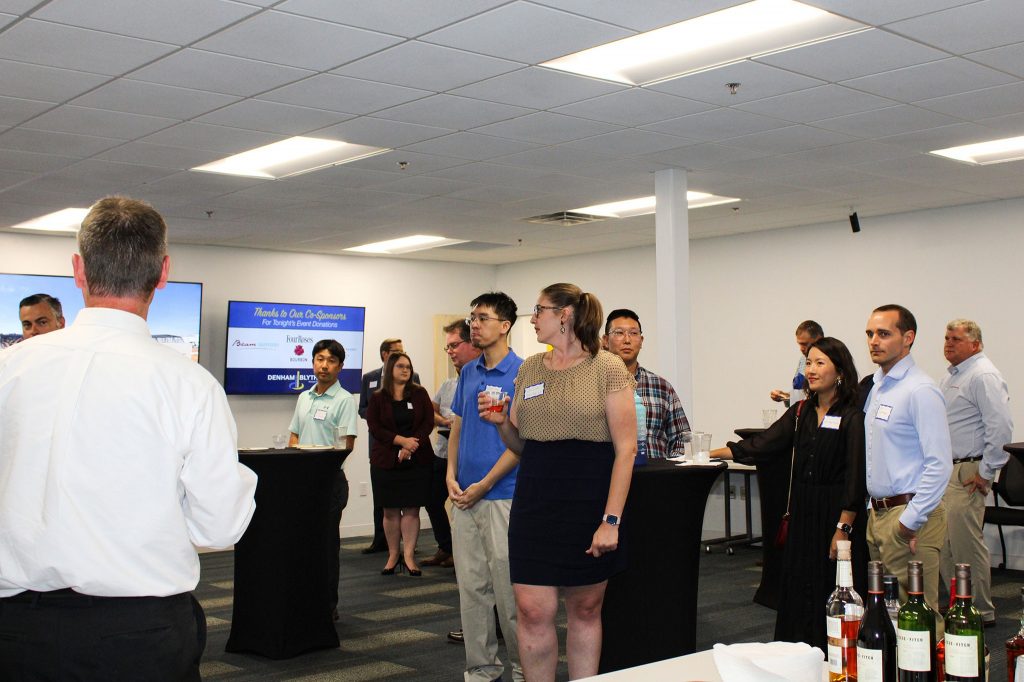
Denham-Blythe hosted the September Japan/America Society of Kentucky (JASK) 6:01 Networking event. Invitees had the chance to meet and mingle with fellow members to learn about business, culture and social customs of Japan and Kentucky. Co-sponsors of the event which included generous donations for our door prizes included: Beam Suntory, Four Roses Bourbon, and Lexington Griffin Gate Marriott Golf Resort & Spa. To learn more about JASK, click here: https://www.jask.org
Denham-Blythe donates much needed flood relief for Eastern Kentucky residents
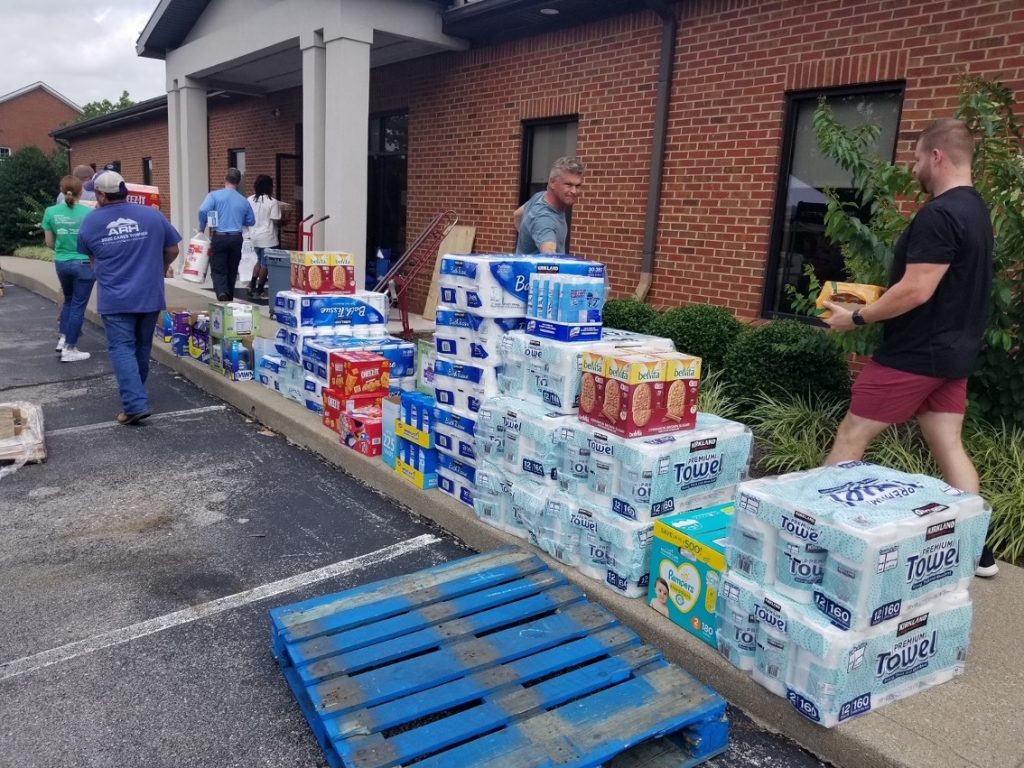
To aid with flood relief in Eastern Kentucky, our team members took a truckload of cleaning supplies, food and other necessities to Appalachian Regional Healthcare (ARH) where the items could be dispersed to the affected areas. If you would like to donate to flood relief, you can contribute to the Denham-Blythe GoFundMe page at https://www.gofundme.com/f/denhamblythe-KYFlood or the ARH donation site at https://www.arh.org/floods
200-Ton Process Vessel installed at PureCycle Technologies in Ironton, OH
We recently installed a 220-ton process vessel at our PureCycle Technologies site in Ohio. Check out the remarkable journey over water and land of this towering piece of equipment to its final destination!
Grand Opening Ceremony for Asahi Bluegrass Forge2 in Richmond, KY
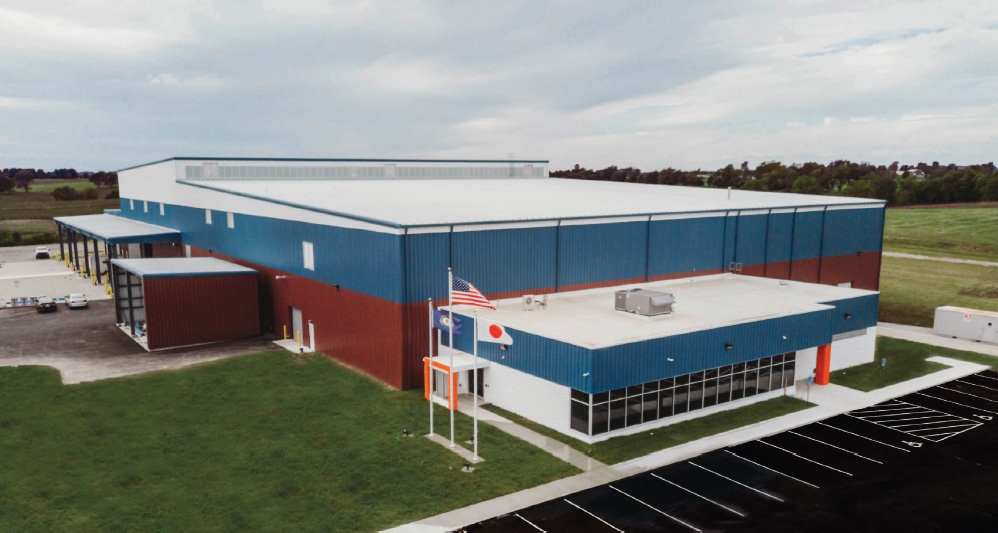
Denham-Blythe Company delivers EPC for Groundbreaking recycling facility
Denham-Blythe Company led the Engineering, Procurement, and Construction (EPC) team for the PureCycle Technologies Feedstock Evaluation Unit (FEU), a groundbreaking plastics recycling facility located in Ironton, Ohio.
PureCycle Technologies just announced it has successfully completed purified waste carpet from its FEU, transforming discarded carpet into clear, odorless, Ultra-Pure Recycled Polypropylene (UPRP) resin through its proprietary plastics recycling technology, developed and invented by Procter & Gamble.
“Working with a startup company attempting to bring novel recycling technology to market would be an intimidating project for most people,” said Michael Patterson, Executive Vice President of Denham-Blythe Company and FEU Project Executive. “However, our team, including EN Engineering, embraced our role from day one. We’re proud to be partners with PureCycle Technologies and to see the successful operation of the FEU, which marks a huge milestone for the future of plastics recycling.”
By bringing this game-changing technology to market, PureCycle Technologies has gained global attention, partnering with industry giants including Nestlé, L’Oréal, Aptar and Milliken & Company. With the successful scaling of this technology, PureCycle has plans for a second phase which is expected to come online in the summer of 2021.
“By working together with a focused approach, we can clean up the planet,” stated PureCycle Chief Operations Officer Tayt Rule. “We’ve had a great experience working with the Denham-Blythe and EN Engineering team for our Feedstock Evaluation Unit. Because of our track record of success together, we are even more excited to be working with this team for construction on our commercial plant.”
Within the next 30-60 days, the teams will begin work on a larger-scale, commercial-sized polypropylene resin purification facility on the same site, which will process 105,000,000 lbs. per year of recycled polypropylene.
About Denham-Blythe Company
Denham-Blythe Company is a design-build construction company with over 40 years of experience in the automotive, industrial, food/pharma, healthcare, institutional, and commercial sectors. Since 1976, Denham-Blythe has completed more than 10,000 projects across the U.S. and in Mexico for a diverse customer base that includes local startups and Fortune 500 companies.
From design to planning to building – Denham-Blythe has it all covered
By Karen Hawthorne
Not many companies can take on a construction project from start to finish. Denham-Blythe has been doing just that for more than 40 years across a wide range of industries. The secret? An excellent team of designers and builders under one roof.
Take a walk through the streets in any American city and you will see impressive buildings – from office towers to hospitals to factories. What you don’t see is the all the vision, time, planning and work that goes into the construction of these buildings.
Raising these structures takes hundreds of people. You’ve got architects, engineers, contractors, equipment operators and more, so often the biggest challenge becomes managing the people and their competing voices to keep the timelines moving and on budget.
That is the hard work that takes place even before one shovel goes in the ground. Then, when construction does start, different factors such as safety, logistics and other unexpected issues must be managed. Few companies are able to take their clients through all these steps of a construction project without having to subcontract work out.
Denham-Blythe is one company that can.
With its 40 years of design and build history, this company knows how to get it all done. The “Design-Build” delivery method is really about covering all the steps in a construction project from the point of sketching out what a building may look like to designing it, and ultimately building it from the ground up.
Denham-Blythe got its start from two engineers out of the University of Kentucky in Lexington, where the company is headquartered, who saw the value of having all people working on a project sit down at the same table to prevent obstacles before they crop up. Now, Denham-Blythe has two additional offices in Nashville, Tennessee and Greenville, South Carolina, boasts 200 employees, and has handled more than 10,000 projects for clients across diverse industries, including manufacturing, automotive, food, pharma and healthcare. It also takes on different sizes of projects from small startups to Fortune 500 companies.
“We do work on buildings associated with everything from bananas to Post-It Notes,” says Michael Patterson, Executive Vice President of Construction and Business Development for Denham-Blythe.
“Our relationships are so well established because the customer has one person to talk to. It’s a single point of communication and responsibility,” Patterson says. “Having all the forces in house is actually very uncommon. You will see people and companies that offer ‘design-build’ but realistically, there are very few in the industry that have all of those design disciplines and construction capabilities employed full-time in their company.”
The company takes pride in being able to tackle the more complicated projects because of its diverse and specialized staff. About 85 percent of all the work the company does is turnkey with Denham-Blythe handling the entire end-to-end design and construction.
“We have a saying here that if it’s a difficult, challenging project then that’s a perfect Denham-Blythe job,” Patterson says. “We have the whole package for design and build elements, including architects, civil and structural engineers, mechanical, electrical – all of those disciplines along with the construction forces as well. So we enjoy those projects and it sets us apart from the competition.”
And some of the projects can be incredibly complex. For example, one of Denham-Blythe’s clients required a major processing line renovation in its factory. “That’s not anything abnormal for us in general; but we ended up working in the middle of a functioning facility. So we had to rebuild the line while not interrupting production on either side of it.” Oh and by the way, the factory was producing specialized glass, the kind that you see on an iPhone, so the margin of error during all this work was zero.
So, with two glass production lines working on either side, the Denham-Blythe team carved out the middle of the plant and made the new part of the building deeper by taking it down 20 feet into the rock to create the height needed for the production line. “Just logistically putting that in the bullseye or center of a functioning glass manufacturing facility was very interesting, very challenging. It involved some very major cranes and a lot of planning,” says Patterson.
To accomplish all this, the company had six teams work continuously, seven days a week for about six months. “It was very high-risk work but we didn’t have an accident either, so we are very proud of our safety record on that one.”
Other significant projects the company is currently working on include a 29,000-square-foot, three-floor expansion of cable manufacturer Okonite Company’s logistics building in Orangeburg, South Carolina. This involved expanding the dock area of the facility as well as creating 75,000 square feet of paved parking for trucks. Denham-Blythe was also chosen to design and build a 270,000-square-foot plant for DAE-IL Corporation, a powertrain and parts manufacturer for the automotive industry.
What is even more impressive is that during the work on all of these large-scale and complex projects, Denham-Blythe has more than 1 million safe man hours of work – that is the equivalent of about 35 months of work. The company has been recognized with Governor’s awards in both Kentucky and Tennessee for its work excellence as well as its safety record.
“Safety for us is a value and a cultural element,” Patterson says. “The numbers are more than just numbers; it’s really what we value and we take it very seriously. We start each meeting with a safety topic, and all of our projects have a job hazard analysis.”
These high safety standards qualify the company to bid on projects for larger, more robust companies. It’s these larger companies that actually pre-screen potential contractors to ensure that they have a solid safety track record.
Along with all the success Denham-Blythe has achieved, the challenge to continue to recruit and hire the best talent is firmly on the radar. “We are seeing a turning of the tide now to more interest in vocational programs and construction trades, because people are realizing you can make a good wage.” To scout out future talent, Denham-Blythe has established a co-op program where high school students have the chance to get a real-world view of how things work at the company.
But there’s more to what the company does than steel and concrete. Certain jobs stand out for their impact on the lives of people and the environment, which is an important legacy for the company.
For example, “We will be working to build a game-changing plastics recycling facility,” shares Patterson. “It will be brand new in the industry and we are very proud to be part of that opportunity. It should be under construction in the last quarter of the year. We also work in healthcare building so we know that we are doing work that helps people directly.”
DAE-IL Corporation breaks ground on their first U.S. facility in Murray, Kentucky
The Murray-Calloway Economic Development Corporation hosted a groundbreaking ceremony to welcome DAE-IL Corporation (DIC) to the community in Murray, Kentucky, the future home of their first U.S. production facility.
The $50 million facility is expected to create 120 new Kentucky jobs for production, engineering, technicians, and other skilled professionals. This is the largest startup investment ever in Murray, Kentucky.
DAE-IL Corporation is headquartered in Ulsan, South Korea with primary export markets in China, Germany, Japan, and the United States. DIC manufactures and sells powertrain parts for automotive, heavy equipment, and motorcycles. With clients including GM, Hyundai, Kia, and Tesla, the global demand for electric vehicle parts pushed DIC to build this new facility in the United States.
“Our company motto is to be the best powertrain maker in the world. It is our target and dream, and we will work hard to achieve this title,” said DIC President and CEO Johnny Kim during the groundbreaking ceremony. “I believe our goal will be fulfilled here in Murray, Kentucky.”
Denham-Blythe Company was selected to design and build the 270,000 square-foot plant that is being built in the Murray-West Industrial Park. The facility will include offices, a warehouse, and a forging and machining facility. Construction is expected to be complete in May 2019.
“Denham-Blythe Company is excited to be a part of this major investment in Kentucky,” said Bill Quenemoen, CEO of Denham-Blythe Company. “DAE-IL will have a huge positive impact on the region with so many great employment opportunities. We are looking forward to working with DAE-IL and the Murray-Calloway County Economic Development team on this project.”
Denham-Blythe Company is a design/build construction company with over 40 years of experience in the automotive, industrial, food/pharma, healthcare, office, and distribution sectors. Since 1976, Denham-Blythe has completed more than 10,000 projects across the U.S. and in Mexico for a diverse customer base that includes local start-ups and Fortune 500 companies.
Denham-Blythe Company is building new offices to sustain its growth
By Kat Zeman, Senior Editor at Knighthouse Media
When it comes to design/build, Denham-Blythe Company is in its element. The Lexington, K.Y.-based design/builder specializes in industrial construction from the initial concept of a project through completion, taking on the role of both designer and constructor.
“That gives us a significant competitive edge,” CEO Bill Quenemoen says. ”We have architects, engineers, designers and construction managers all under one umbrella. Frequently, many companies will call themselves design/build but in reality they are a design firm or contractor that has to partner with other companies to be able to provide a complete design/build package.”
Denham-Blythe has a number of projects under construction in Tennessee and Kentucky, its main operating market. However, the company has worked on projects in other states as well. “We started as a Kentucky-based company but our customers have taken us all over the country. I consider us to be a regional design/builder but with a national capacity.”
Growing Need
Denham-Blythe has enjoyed healthy growth over the past few years. To accommodate the growth, it is constructing a new office building in Nashville. The company has had a presence in Nashville for almost two decades through a small satellite office it has been leasing, but it has outgrown it.
“This new building is necessary for us to sustain our growth in Nashville and the southern design/build markets,” Quenemoen says. “We are really booming in that whole southeastern market.”
The new two-story, 13,800-square-foot building broke ground in fall 2017. Roughly 50 employees are expected to move into the building’s top floor by the end of June. “We plan to lease out the lower level to others initially but will expand into that space down the line as we continue to grow,” Quenemoen says.
Bread And Butter
Since it specializes in industrial construction, Denham-Blythe tackles many projects for manufacturers that need custom-built facilities and warehouses. “Industrial design/build is our bread and butter, accounting for more than 80 percent of our business,” Quenemoen says. “But we do some light commercial and office buildings as well.”
The company has a unique project under construction in Ironton, Ohio. It is building a $140 million recycling facility that will take recycling to a new level.
“They will be using waste polypropylene plastics and recycling them into a high-quality reusable plastic material,” Quenemoen says. “It’s the first of its kind, especially in our region. So it’s a big deal for the overall market. It will change the recycling market here.”
At more than 100,000 square feet, the project broke ground in December and is targeted for completion in 2020. Another high-profile project, completed in October 2017, is a $85 million, 350,000-square-foot aluminum casting facility in Russellville, Ky.
“They recycle cans, shred and melt them and turn them into aluminum coils that are turned back into cans,” Quenemoen says. “One of the challenging things about this project was that they wanted to supply their own aluminum for the siding and the facility was being built on a sinkhole site. So we had to remediate a number of sinkholes below the building.”
Doing It In-House
Denham-Blythe has been providing architectural, engineering, construction management, general contracting and start-up services since 1976. Its clients include healthcare, education, religious institutions, Fortune 500 manufacturers, multinationals and a number of large private companies. The design/build contractor has offices in Nashville, Lexington, Ky., and Greenville, S.C.
Design/build is an alternative to the traditional design/bid/build project delivery method. Under the latter approach, design and construction services are split into separate entities, separate contracts and separate work.
Denham-Blythe credits its success in the design/build construction industry to its staff. Its in-house design team of registered architects and engineers focuses on creating functional, flexible and cost-effective solutions.
“Our people are our greatest asset,” Quenemoen says. “We have the best in-house personnel across the board. This includes carpenters and project managers as well as architects and engineers.”
The company’s in-house engineers prepare preliminary design analysis, design calculations and project documents. The team can make quick adjustments in design, scope and methods that affect scheduling. “We can control the design and schedule and expedite projects to keep them on schedule and within budget,” Quenemoen says.
The Denham-Blythe construction management method focuses on components that allow the customer to remain involved with the design team and construction crew throughout the process. “At the end of the day, we live and die by our customer services,” Quenemoen says. “More than 90 percent of our business is repeat clients. If we did not treat every project as the most important one, we would not have that kind of return customer statistic.”